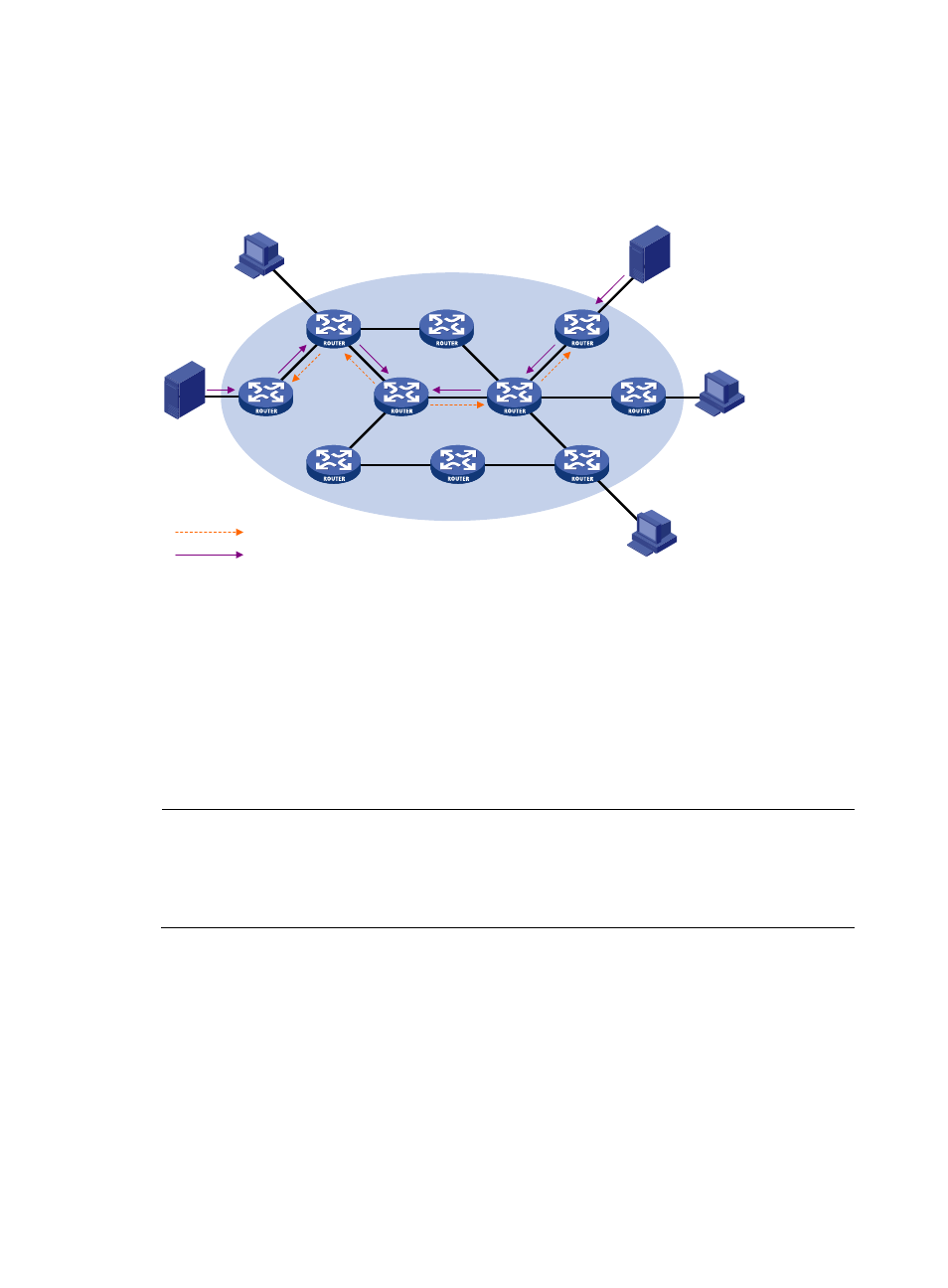Ipv6 administrative scoping overview, Division of ipv6 pim-sm domains – H3C Technologies H3C S10500 Series Switches User Manual
Page 382

367
the RPT to the RP. After receiving the prune message, each upstream node deletes the interface connected
with the downstream node from the outgoing interface list and checks whether it has receivers in that IPv6
multicast group. If not, the router continues to forward the prune message to its upstream router.
Figure 100 RPT building at the multicast source side
Source
Server A
Server B
Host B
Host C
Receiver
Receiver
IPv6 Multicast packets
Source-side RPT
RP
Source
Host A
Receiver
As shown in
, the process of building a source-side RPT is relatively simple:
1.
When an IPv6 multicast source sends IPv6 multicast packets to IPv6 multicast group G, the DF in
each network segment unconditionally forwards the packets to the RP.
2.
The routers along the path from the source’s directly connected router to the RP form an RPT branch.
Each router on this branch adds a (*, G) entry to its forwarding table. The * means any IPv6
multicast source.
After a bidirectional RPT is built, multicast traffic is forwarded along the source-side RPT and receiver-side
RPT from IPv6 multicast sources to receivers.
NOTE:
If a receiver and an IPv6 multicast source are at the same side of the RP, the source-side RPT and the
receiver-side RPT might meet at a node before reaching the RP. In this case, IPv6 multicast packets from the
IPv6 multicast source to the receiver are directly forwarded by the node to the receiver, instead of by the
RP.
IPv6 administrative scoping overview
Division of IPv6 PIM-SM domains
Typically, an IPv6 PIM-SM/IPv6 BIDIR-PIM domain contains only one BSR, which is responsible for
advertising RP-set information within the entire IPv6 PIM-SM/IPv6 BIDIR-PIM domain. The information for
all multicast groups is forwarded within the network scope administered by the BSR. We call this IPv6
non-scoped BSR mechanism.
